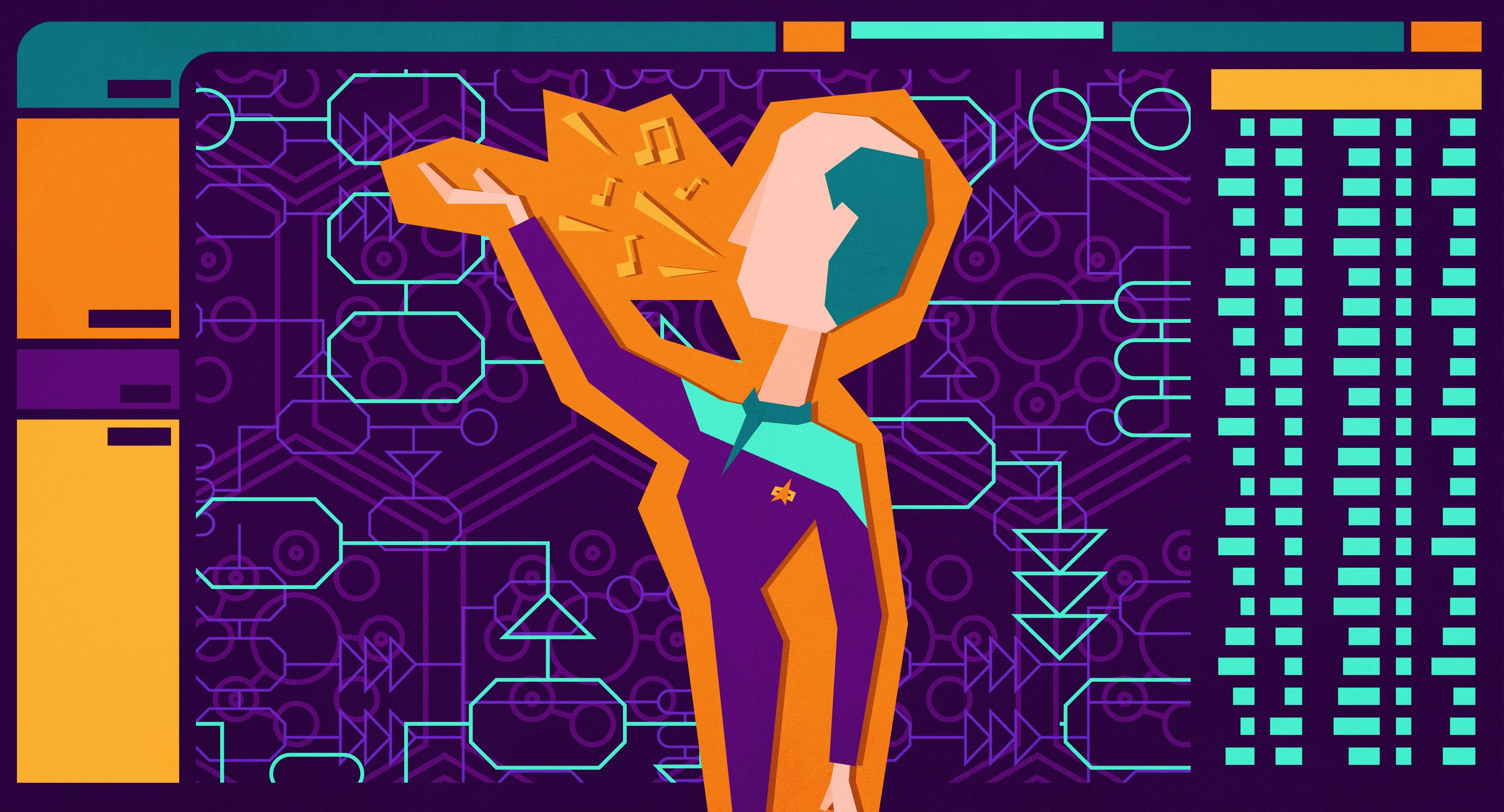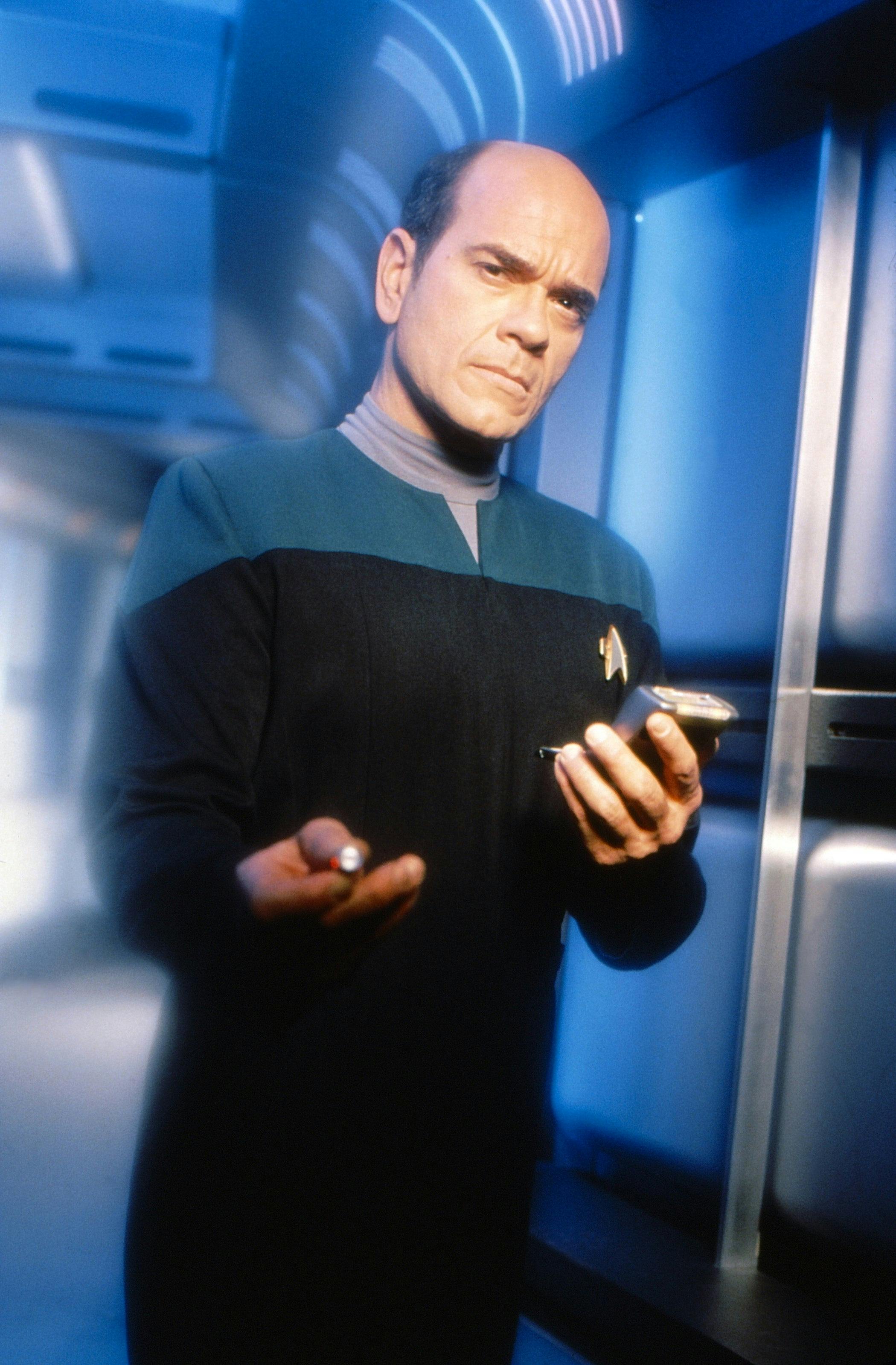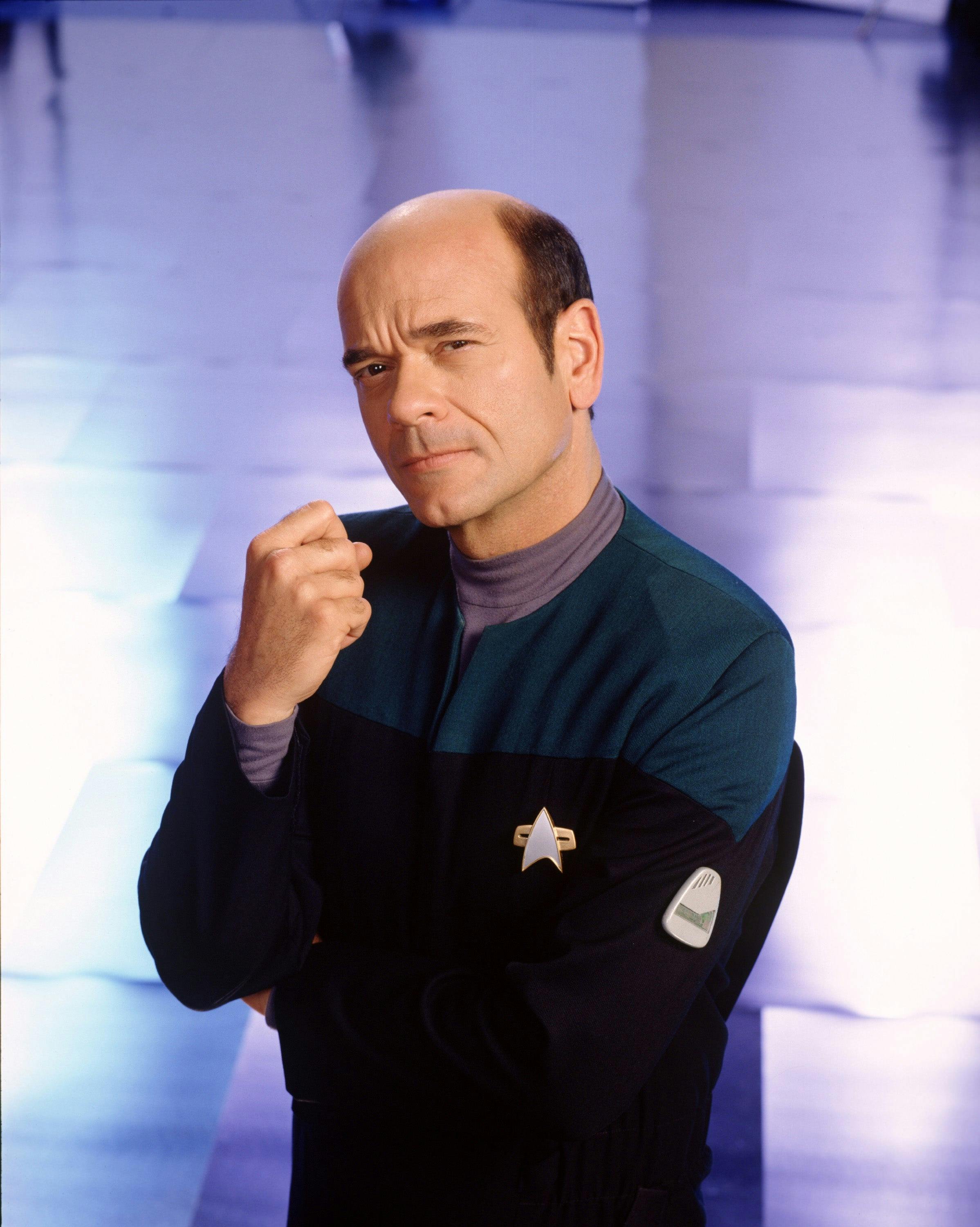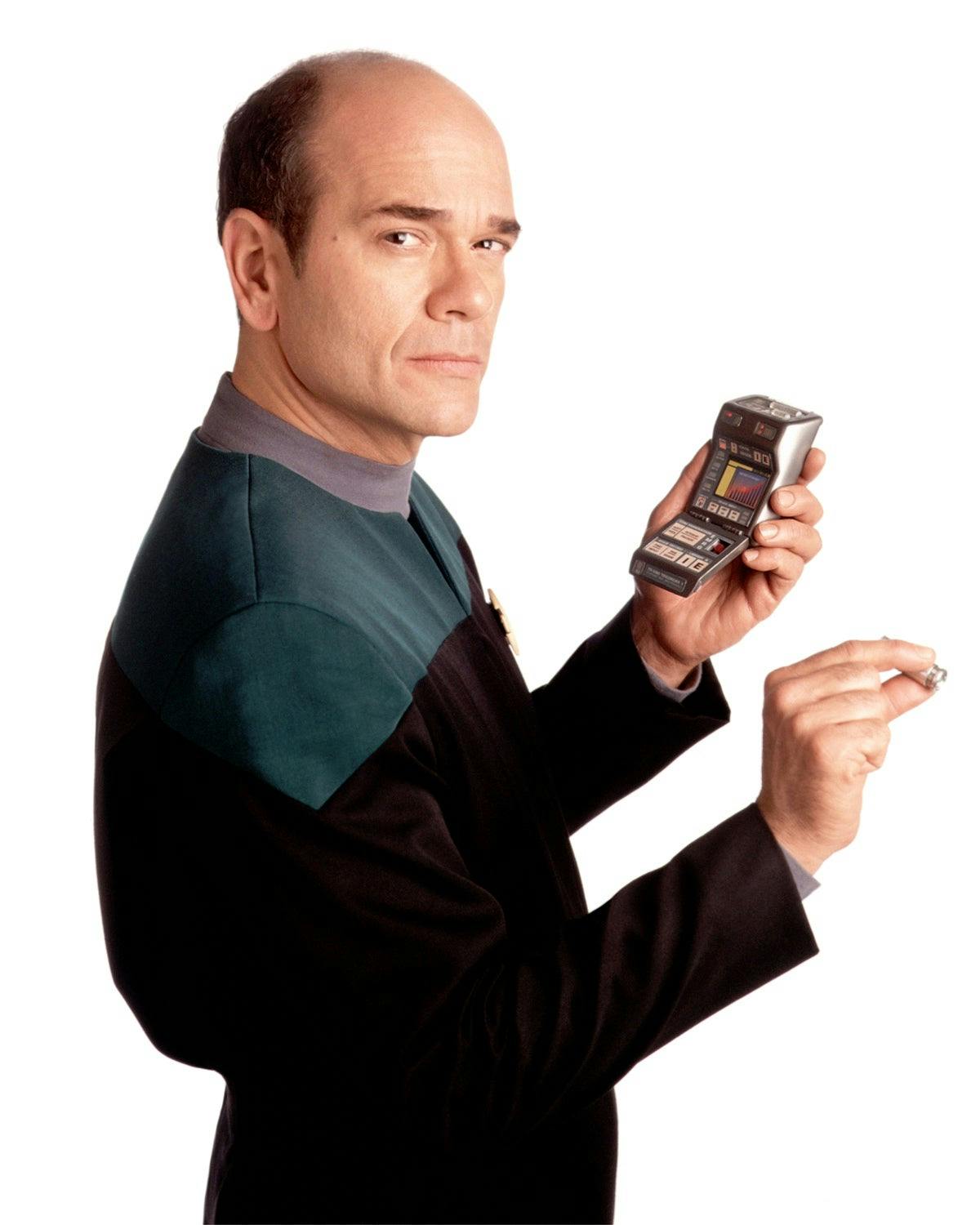Published Jan 5, 2023
What I Learned About Self-Esteem From Voyager's Doctor
'In improving and finding himself, he also added the development of his self-esteem to his repertoire as he learned to love and value himself.'

StarTrek.com / Rob DeHart
When The Doctor was first activated on Star Trek: Voyager, he was curt and impersonal. Even so, it was clear he had a personality and a good — if artificial and holographic — heart. He also only knew how to act the way he was programmed, was asked to help during a crisis, and didn’t have all the resources he was set up to expect.
As the crew came to depend on him for care and assistance, The Doctor continued to add subroutines to his program that made him a bit gentler and gave him more personality. Many of these new subroutines allowed him to find interests, comfort others, desire pleasure, and even develop flaws.
During quarantine, I had the chance to consider Star Trek from a different point of view, and now I realize that The Doctor’s subroutines didn’t just add intelligence. In improving and finding himself, he also added the development of his self-esteem to his repertoire as he learned to love and value himself.
It’s okay to work on yourself

StarTrek.com
The Doctor, or Emergency Medical Hologram (EMH), felt it was necessary to have interests and embrace humanity so that he could become a better version of himself. This sometimes came at great personal cost as his programs were designed to fit certain parameters. He never allowed his programmed limits to get in the way of his quest to be better. Without this inner work, it may have been difficult for The Doctor to rise to the many occasions that required his assistance.
While during COVID-19 lockdown, I began to recognize some “subroutines” of my own, and I started working on them through reading, talking with friends, and finding self-help books in lieu of America’s expensive mental health care. Needless to say, those who have access to a therapist should certainly use them as a resource if they can.
The Doctor added interests such as opera, and bonded with Starfleet members such as Seven of Nine, Kes, Neelix, and Tom Paris. Through his newly acquired skills, he learned to listen, give advice, discuss philosophy, and even ponder about ethics.
Improving oneself can help us help others

StarTrek.com
Growth, and learning to love oneself often involves showing our worst or weakest moments to others. We can inspire them to keep going when they, too, don’t feel the confidence to continue the road ahead. The Doctor’s mistakes became a valuable source of inspiration to others on the ship, and he even became a trusted friend to many of the crew. He gained wisdom from making faux pas and found that the crew were forgiving and welcoming of these. In doing this, The Doctor created a support system and close-knit group of friends.
The Doctor didn’t waste time trying to impress others

StarTrek.com
The Doctor employed sarcasm and wit, and Starfleet members came to enjoy his company and sometimes returned with quick banter themselves. There were moments when The Doctor answers in annoyance, but he never let others’ comments lower his self-esteem.
Nowhere was this clearer than when The Doctor met the scientist who created him, Lewis Zimmerman. At that time, Zimmerman was unhappy with the EMHs he created because he felt they didn’t fully accomplish his goals. However, The Doctor refused to back down and didn’t make himself smaller just to please Zimmerman. Instead, he did everything possible to gain his respect and demonstrate how valuable he was to Voyager.
This self-assuredness led Zimmerman to be proud of The Doctor for having done much more than he was meant to. The Doctor’s confidence and his knowledge of his worth eventually led to others being able to see that in themselves as well.
The Takeaway
Self-love is about accepting ourselves, our flaws, strengths, and weaknesses. In time, we may turn our weaknesses into strengths and even decide that we might want to improve certain aspects of ourselves out of care, and on our own terms.
The Doctor taught me that self-esteem and loving yourself can be learned, and is an ongoing process. We can program ourselves through feedback from those closest to us, the path that we create, and the wounds we learn to heal along the way.
This article was originally published on April 20, 2021.
Ingrid Cruz (she/her) is a freelance writer and illustrator. She enjoys coffee, traveling, and baking. You can follow her adventures on Twitter or Instagram: @ingridiswriting
Stay tuned to StarTrek.com for more details! And be sure to follow @StarTrek on Facebook, Twitter, and Instagram.

